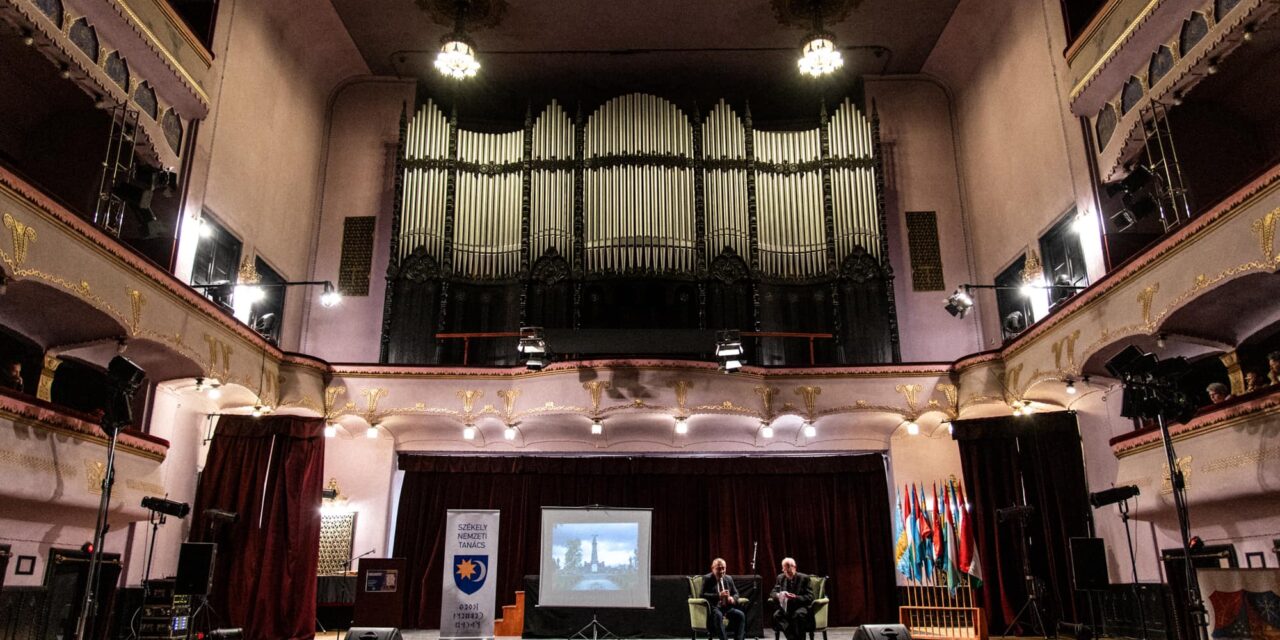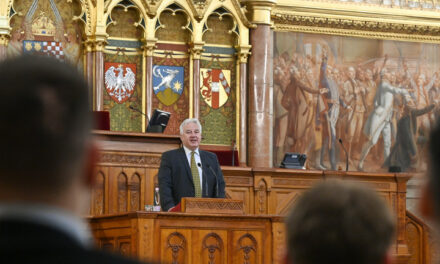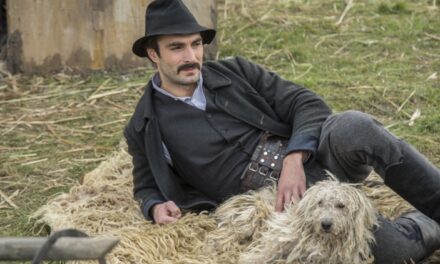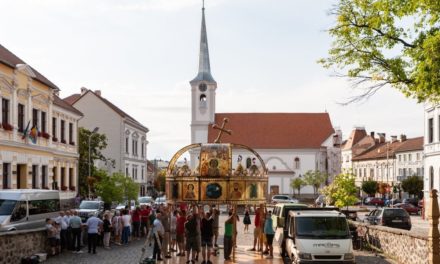The danger in Madefalv warns of future tasks, it was said at the commemoration in Marosvásárhely.
The steadfastness of our ancestors still serves as an example, the way they stood up for their own sane interests, the way they did not bow to the will of others, is an example for us to follow in the 21st century as well, stated the State Secretary responsible for national policy on Sunday evening in Marosvásárhely.
Árpád János Potápi took part in the event of the Székely National Council (SZNT) in the Palace of Culture, where the heroes of the Madefalv disaster were remembered on the 260th anniversary of the bloody historical event.
In his speech, he pointed out: just as on January 7, 1764, there are also "arrogant innovators who want to enforce plans against all human sanity" today.
It is a shared responsibility to resist, to keep the steadfastness, faith, and attachment to the nation of our ancestors, said the representative of the Hungarian government. The state secretary reminded: he himself is from Székely, a member of the community that was personally affected by the genocide in Madefalv through his family history.
His ancestors were Szeklers from Bukovina, and his grandparents told a lot about the life of this community, he said, then recalled the bloody events of January 7, 1764, pointing out that "imperial pride" caused the death of men, women and children, but with the Szeklers' love of freedom and respect for tradition was powerless against. He underlined: respecting traditions does not mean shutting down or withdrawing from external influences, as the people of Székely are welcoming, integrated and lovable.
"But inclusion and integration have never meant, nor can they mean giving up on ourselves today," said the state secretary.
He touched on the fact that 2024 is the year of the cooperating nation in national politics, and emphasized that it should also be the year for the elections in Transylvania and Romania. "With regard to the Hungarian representation, cooperation is needed. Political representation helps maintain all other institutional systems. This is necessary in order for national interests to be enforced at all levels," he underlined, and asked the members of the SZNT to support national unity in Transylvania.
Izsák Balázs, the president of the SZNT, explained: the danger in Madefalv warns of future tasks. He announced: the SZNT will begin preparations for the Székely Freedom Day on March 10, where effective action must be taken against the planned administrative reorganization in Romania.
Recalling the disaster in Madefalv, he pointed out: 1762-1763 were the years of the Székely national resistance, as Mária Terézia's empire organizing plans wanted to subvert the way of life of the Székely people.
"If it is stripped of its culture and traditions, the Székely community will cease to exist. They did not fight for privileges in these two years, but for their lives. For the existence of the Székely people," said Izsák.
He said that the Romanian government today wants to merge the Székely counties into a region with a larger Romanian majority, so the stakes are the same. "They want to eliminate the remaining territorial framework of the existence of Székelység," Balázs Izsák explained. He emphasized that "the people of Székely are the people of the law", even then, and even today, they try to fight with the tools of the law.
He recalled the Székely march in 2013 and emphasized that strength must be shown even now.
"Because if someone wants to break the tradition, customs, language and culture of the Szeklers, they break the life of the community. I trust that we are all aware of this," said Balázs Izsák, encouraging everyone to participate in the March 10 event.
József Ötvös, a retired Reformed pastor, gave a blessing at the event in Marosvásárhely. The speeches were followed by a performance by the Maros Art Ensemble and a performance by Ilka Kilyén.
On January 7, 1764, the imperial troops massacred hundreds of protesting Szeklers who had gathered in Madéfalva against the border patrols. After that, the mass emigration of the Szeklers to Moldavia began, where the Csangós gave them shelter.
Cover image: In the Palace of Culture in Marosvásárhely, the heroes of the Madéfalv disaster were remembered on the 260th anniversary of the bloody historical event
Source: Facebook/Székely National Council













